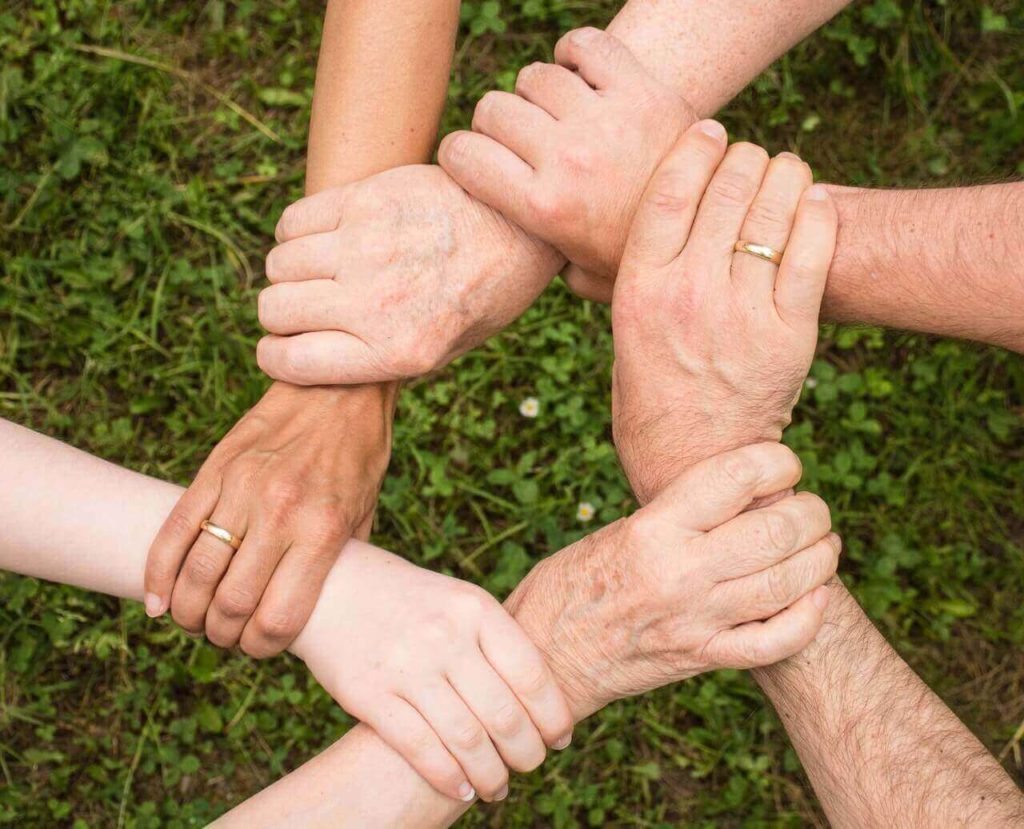It is easier to have a great appreciation of art than to master the art of appreciation. A great part of the emotional balance of a relationship rests on the shoulders of appreciation. This invisible cord binds people together as tight as love does. Actually, appreciation in a relationship originates from love, friendship, trust, knowing each other well. It keeps you close; it keeps you together.
The good news is, appreciation can be studied, it can be practiced. Appreciation is defined in Webster’s dictionary as “a feeling or expression of admiration, approval, or gratitude” towards a person. This definition doesn’t give us too much to work with, however, Imago therapy does.
Learning the Imago appreciation dialogue
The basic goal of the Imago Dialogue is to heal and help couples find their love for each other again. The Imago dialogue is a broad technique we use in our Imago Relationship therapy sessions. It is not a normal discussion where two people shoot their opinions back and forth without actually listening to the counterpart. No. An imago dialogue is an exchange, where the two people have two different roles: one talks, and the other listens, mirrors, validates, and empathizes… then it’s the other’s turn.
The problem with normal conversation is that you are not actually listening to what the other says. You are mostly thinking about how to better respond to his or her remarks, and thus missing out on the message he or she tries to convey.
So, what does this have to do with the appreciation dialogue? A lot. The appreciation dialogue in Imago stems from the very midst of the Imago intentional dialogue. It involves voicing what you appreciate in your partner, while also listening to what he appreciates in you.
More often than not, this technique opens the door to a new level of personal discovery of each other. It brings you back to those first moments of your relationship when you first found yourselves and gives your relationship a new meaning in the light of the years spent together.
As you might have found out already, giving and receiving appreciation is difficult. Appreciation is an experience each of us feels differently, and thus it is very hard to quantify, and put into words.
Besides, somehow, inherently, we are afraid of big words because they might give voice to our deepest fears, and insecurities. Words help shape everything, make everything a little bit more real, right? So letting them out freely is a fearful thought. As a result, more often than not, we even stop the good words from coming out.
How many times have someone tried to say a few words of appreciation to you, and you shut them up with a blushed “Oh, that’s nothing”? How many times have you tried to tell your partner something nice, but stopped abruptly and changed the subject?
You might have stopped because maybe you felt there was not the right time and place for that. Maybe you feared that your words of love might also touch a place of pain inside your partner?
Love heals, but sometimes we’re afraid to experience this feeling because healing also takes pain. As a result, there are some people who find it hard to receive love, but love is also a process, a feeling that also needs to be learned. Appreciation dialogue is a start.

Why? Because it also requires a partner to ask permission. It’s like saying: “I want to take a few minutes and open my heart to you, pamper you. Are you in the right mood for it?”
Why regular appreciation is important and what are the words of affirmation?
Regular appreciation leads to increased love and connection with your partner. It helps understand each other and also learn what your partner needs in terms of affirmation words.
See, we don’t love in the same ways, and we don’t speak the same Love Lanugage. As we have discussed in the previous blogs, there are different love styles and different ways of expressing our affection. We understand and perceive love in various ways and we expect to be loved precisely that way. Without proper dialogue, even a big love can flounder.
Giving each other regular mini appreciation doses once or twice a day will help you align yourself to the same wavelength, learn your partner’s caring behaviour, and show yours to them. So why not find a few minutes and focus on each other. Open your hearts, and listen!
The importance of appreciation at the workplace and Chapman’s 5 languages
Appreciation is not only crucial in your love life. The art of appreciation goes a long way and plays a very important role in our social and professional lives as well. Now that our social and work boundaries have been turned upside down by the Coronavirus pandemic, reiterating these 5 rules of appreciation at the workplace seems more fitting than ever.
Gary Chapman wrote the book The Five Love Languages in 1995.He started with the premise that we have at least one primary way in which we like to receive love, appreciation, affirmation. We discussed them as love languages in our previous article. So, what we are going to do now is refer to them as appreciation languages and how they can help you professionally, in your virtual work from the home office, these days.
Employees or work colleagues also need professional affirmation and they require it in different ways. Knowing your pals’ or employees’ appreciation language can help you or your company keep a motivated, closely-knit team together.

These are the 5 languages of appreciation:
Words of affirmation
Some people need words to feel appreciated. A simple “good job”, “GG Easy”, well done” will go a long way for them. For these colleagues or employees, you need to make sure you have a one-to-one frequently, assuring them that their work is most appreciated.

Acts of service
While some people love words, others need actions of affirmation. Showing your teammates that you appreciate their effort and lending them a helping hand in a difficult project, maybe buying them coffee or lunch for their good work, will show them that you appreciate their work.
They do not have to be big actions, just small, meaningful gestures. They’re not hard to find, I’m sure of that.
Receiving gifts
Valuing material objects as an indication of being appreciated for your work performance is not wrong either. Some people just love to be shown respect and affirmation through little gifts from their teammates, bosses, colleagues. They do not have to be expensive, big gifts. No. Do not think of a person with the receiving gifts appreciation language as a materialist. Do not fall into this trap!
There is nothing wrong with wanting your colleagues to show their appreciation through little presents.
Quality time
One-on-one meetings and check-ins are valued by people with this appreciation language. It makes them feel like they belong in the workplace, in the team. Before the pandemic, company outings like team buildings, picnics, events, nights-out were great ways of showing appreciation. Now that we’re mostly confined to our homes, we need to get more creative in this aspect.
A person whose primary language of appreciation is quality time might struggle in this time so, for now, deploy your energy to help.
Physical Touch
Last but not least there is the physical touch appreciation language. For some, this might be the most difficult language of them all because it implies a lot of handshakes, fist bumps, or any kind of touching gestures that basically say “Good job”.
Of course, the next natural question is “how do you know who is which?” Of course, you don’t. It takes time, observing, and discussing with your teammates, colleagues, or employees. Usually, people communicate in the way they would like to be communicated with, so you will get it afterward.
Begin and end each day with an appreciation dialogue
As you can see, appreciation is much needed in our daily lives. It is that “an apple a day” to keep negative thoughts from creeping in a relationship, not necessarily a romantic one. At Two Halves of a soul, we begin and end every session with an appreciation dialogue.
Although, at first it might feel a little weird, in time it will start to become the “new normal” in your relationships, a new better normal.
If you want to practice the appreciation dialogue with us, just let us know on Facebook or book a meeting here. We can meet in person or via Skype/Zoom to bridge the gap of social distancing.


